Alright, HSK fam, remember when we spilled the beans on Deon Taylor’s cringe-worthy Zoom pitch disaster? Well, Jacky Jasper is back with another piping hot serving of Hollywood drama that’s sure to leave you shook! If you thought Deon’s previous missteps were jaw-dropping, brace yourselves, because this sequel is even more scandalous.
Recap: Deon Taylor, the man behind the cinematic trainwreck “Fear,” tried to salvage his reputation with a TV pitch centered around King Bach. But, as we previously highlighted, Taylor’s pitch was riddled with inaccuracies and a glaring lack of research. From claiming King Bach rubbed shoulders with Steve Jobs (years after Jobs’ passing) to mistakenly dubbing Bach as the “first social media celebrity,” Taylor’s blunders were nothing short of legendary.
Now, in this follow-up expose, we’re diving into another leaked call, and trust us, it’s a doozy. This time, both Deon Taylor and King Bach are in the spotlight, and the revelations are even more shocking. From admissions of past scams to questionable moral compasses, this new chapter in the Deon Taylor saga is a rollercoaster you won’t want to miss.
So, grab your favorite snack, settle in, and let’s dive deep into the murky waters of Hollywood’s behind-the-scenes drama. Ready for round two? Let’s get into it! 🔥🍿🎬
From Amateurish Scams to Hollywood Pretense
The dialogue between King Bach, Caleeb Pinkett, Gary Glushon and Deon Taylor kicks off with Deon, attempting to assert his authority, discussing the potential narrative of a show centered around King Bach’s life. However, his efforts are overshadowed not just by his lack of eloquence, but also by the shocking revelations that follow. Bach, with a disconcerting ease, confesses to a shadowy past riddled with scams during his college years in Florida. More disturbingly, he admits to still possessing screenshots from that era, treating them as cherished mementos of a time he seems to look back on with fondness.
In an age where celebrities are under relentless scrutiny, Bach’s candid confession could be catastrophic for his public image. The modern audience, especially in the era of cancel culture, might find it hard to reconcile with a figure who not only deceived innocent individuals but also appears to reminisce about those days with a sense of pride. Such revelations inevitably raise questions about his moral compass and the foundations upon which his current success stands.
Yet, as heavy as Bach’s admissions are, Deon’s own contributions to the conversation cannot be overlooked. He paints a vivid picture of an era where everyone he knew was embroiled in some form of scam, from drug dealings to check frauds. Given Deon’s extensive record as a defendant, his tales don’t come across as mere anecdotes but rather as potential confessions of his own dubious past. His stories, combined with Bach’s admissions, paint a troubling picture of two individuals who might have been more deeply entrenched in the world of scams than they’d like to admit. The dialogue not only exposes Bach’s questionable past but also hints at Deon’s likely involvement in similar activities, raising concerns about the moral fabric of both individuals.
Blurring the Lines Between Scams and Stardom
Deon’s attempts to draw parallels between the murky world of scams and the complex intricacies of Hollywood are not only misguided but also reveal a profound lack of understanding. In his muddled perspective, he naively posits that the underhanded tactics of scamming serve as a preparatory school for navigating Hollywood’s business dynamics. “It’s all the same game,” he declares with an air of misplaced confidence, seemingly oblivious to the stark differences between small-time cons and the intricate workings of a multi-billion dollar entertainment industry.
His reverence for iconic figures like Jay-Z and Master P, while undoubtedly sincere, is expressed with such a glaring lack of depth that it verges on the absurd. Deon’s insinuations suggest that the monumental success of these entertainment moguls can be traced back to their alleged illicit pasts. Such a claim not only grossly oversimplifies their journey but also undermines their undeniable talents, strategic vision, and unparalleled business acumen. Instead of offering a nuanced appreciation of their achievements, Deon’s comments reduce their legacies to mere products of a questionable past, demonstrating his limited grasp on the realities of the entertainment world.
Misunderstanding the Power of Social Media
As the conversation meanders towards the transformative power of social media in molding celebrities’ public personas, Deon’s superficial grasp on the subject becomes glaringly evident. He champions platforms like Instagram as the ultimate panacea for celebrities to masterfully dictate their public narratives. In a particularly ill-advised example, he references R. Kelly, suggesting that a robust Instagram presence could have miraculously swayed the public’s overwhelmingly negative perception of the singer. Such a claim not only reveals Deon’s naiveté but also grossly trivializes the severity and magnitude of the allegations against R. Kelly.
Bach, undeniably a digital native and a testament to the meteoric rise one can achieve through social media, appears to indulge Deon’s oversimplified views, possibly out of courtesy or to avoid confrontation. Yet, the chasm between Bach’s intricate comprehension of the digital landscape and Deon’s cursory, almost childlike interpretation is palpable. Deon’s comments paint a picture of someone struggling to keep pace with the rapidly evolving world of social media and its profound impact on modern celebrity.
Conclusion
In the revealing dialogue, the glaring immaturity and lack of moral compass of both Deon and Bach come to the forefront. Deon, with his misguided attempts to equate petty scams with the intricacies of Hollywood, showcases a troubling naivety. His casual reminiscing about a time when everyone he knew was involved in scams, combined with his admiration for celebrities based on rumored illicit activities, paints a picture of someone who not only misunderstands the entertainment industry but also lacks a basic moral grounding.
Bach’s candid admission of his past as a scammer is even more alarming. Rather than expressing remorse or understanding the gravity of his actions, he seems almost nostalgic, even going so far as to mention that he still has “screenshots” from his scamming days. This fascination with his illicit acts, coupled with Deon’s misguided admiration, is a stark reminder of the dangers of glorifying criminal behavior. The conversation serves as a testament to the immaturity and moral bankruptcy that can sometimes lurk behind the glitz and glamour of Hollywood.


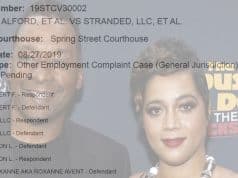

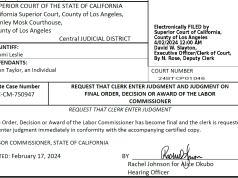
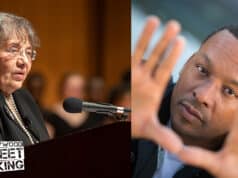


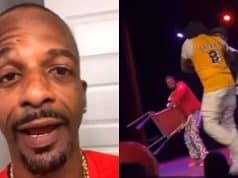
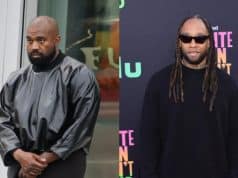
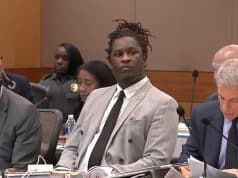
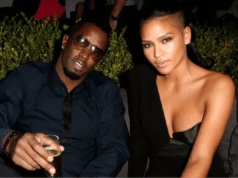
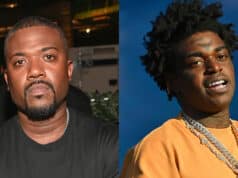











![Kris Jenner Stalker & Subject Of FBI Raid Christina Bankston [EXCLUSIVE AUDIO]](https://hollywoodstreetking.com/wordpress/wp-content/uploads/2014/09/kris-jenner-pr-conspiracy-100x75.jpg)

[…] it again with another piping hot scoop, and trust me, this one’s a revealing! Remember that infamous Zoom leak with Deon Taylor? Well, the plot thickens as we dive deeper into the conversation that also featured Jada Pinkett […]
[…] fam! It’s Jacky Jasper, back with another drop. Remember that notorious Zoom leak with Deon Taylor? Well, we’ve got more juice from that very call, and this time, it’s all about the […]